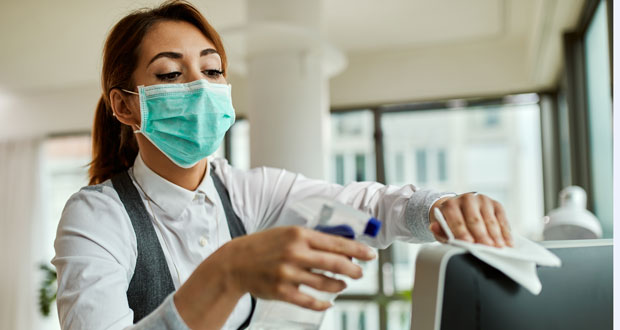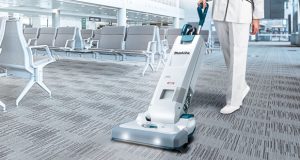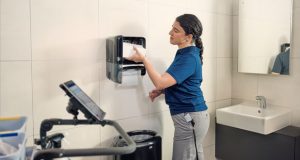By James Carver, Managing Director, OSC
The steady return of workers to offices across the country has been positive news for all. However, this return to normality has coincided with an increase in Covid cases and the fast approach of flu season. This understandably poses challenges for businesses, employers and office providers that depend on workers’ return to work.
Simply put, the cleanliness of our office spaces must now be treated as a key matter of health and safety. In the past considered little more than simple task to be outsourced a few times a week, cleaning practices in the post-Covid era require careful inspection by businesses to ensure that workers can be kept safe and workplaces can continue to thrive and recover.
Preparing for a winter snap
With the winter months approaching and the Covid cases still rising, the NHS Confederation has been concerned enough by the situation to endorse the implementation of the Government’s Plan B proposals which could see a return of the WFH order.¹ At the same time as Covid cases are surging, there have been significant fears of a winter flu outbreak which, on a bad year, could result in 20, 000 casualties.² The rising cases of Covid and the flu must prompt an overhaul in how businesses think about cleaning.
Covid-19 can remain detectable on surfaces for several days, so rigorous and constant cleaning is crucial tool in slowing down its spread.³ Here at OSC, we have utilised a ‘flow-cleaning’ approach where, rather than travelling to clean rooms individually, we clean as we go ensuring that high touch points remain clean at all times. With cases still on the rise, offices can no longer afford to treat cleaning as an irregular task.
At the same time as these fears of rising cases, it was reported that footfall in London was only at half of its pre-pandemic levels by the end of September.⁴ While workers have been making the transition back to the office, they have not been doing so at pre-pandemic levels. Therefore, protecting workers from a winter surge in Covid by treating cleaning as a matter of health and safety could be a key factor in ensuring their return to the office.
The fourth utility
As offices have begun to fill up with workers again, the workforce has returned with new expectations of its space. With 73 per cent of worker aged 25-34 believing they deserve a higher-quality office as they abandon the creature-comforts of WFH life, providing the best possible workspace must be a priority.⁵
Offices must now offer the high-quality networking spaces and hospitality amenities that a home office simply can’t match. In addition, with 69 per cent of British people now paying more attention to cleanliness and hygiene offering a clean and safe workspace must be a priority for businesses.⁶ Introducing enhanced cleaning measures and other small provisions such as hand sanitiser or sneeze screens will be expected by returning workers.
Ultimately, measures such as these will become as fundamental to an office as its electricity, gas and water in order to keep workers safe. A more rigorous and regular cleaning routine must become an office’s fourth utility in order to meet the new expectations of office space.
These new standards of cleaning can help relieve the anxieties that many workers are experiencing. Whilst workers are coming back to the office, our client OSiT’s 2021 ‘Home Commute Survey’ found that 44 per cent of them are still worried about catching Covid. Therefore, it is evident that cleaning will play a key role in facilitating the return back to office life. With the colder months approaching and Covid cases threatening to reach dangerous levels, enhanced cleaning measures are now becoming a basic expectation. Ultimately, offices must get ahead of the curve and treat cleaning as a serious matter of health and safety in order to meet new demands and protect workers.
1 https://www.bbc.co.uk/news/uk-58976577
2 https://www.rte.ie/brainstorm/2021/1018/1254353-covid-flu-winter-season/
3 https://www.bbc.com/future/article/20200317-covid-19-how-long-does-the-coronavirus-last-on-surfaces
4 https://www.telegraph.co.uk/business/2021/10/14/london-recovery-stalls-workers-shun-return-office/
6 https://www.express.co.uk/life-style/property/1508255/how-to-flu-proof-home-winter-tips-expert-evg





